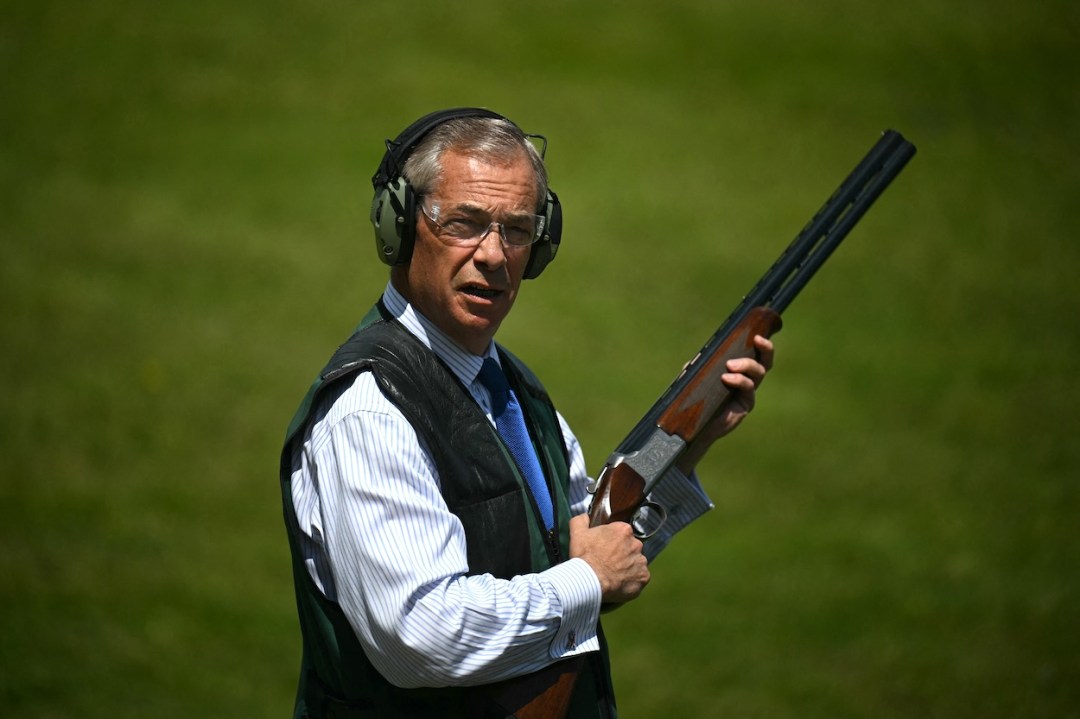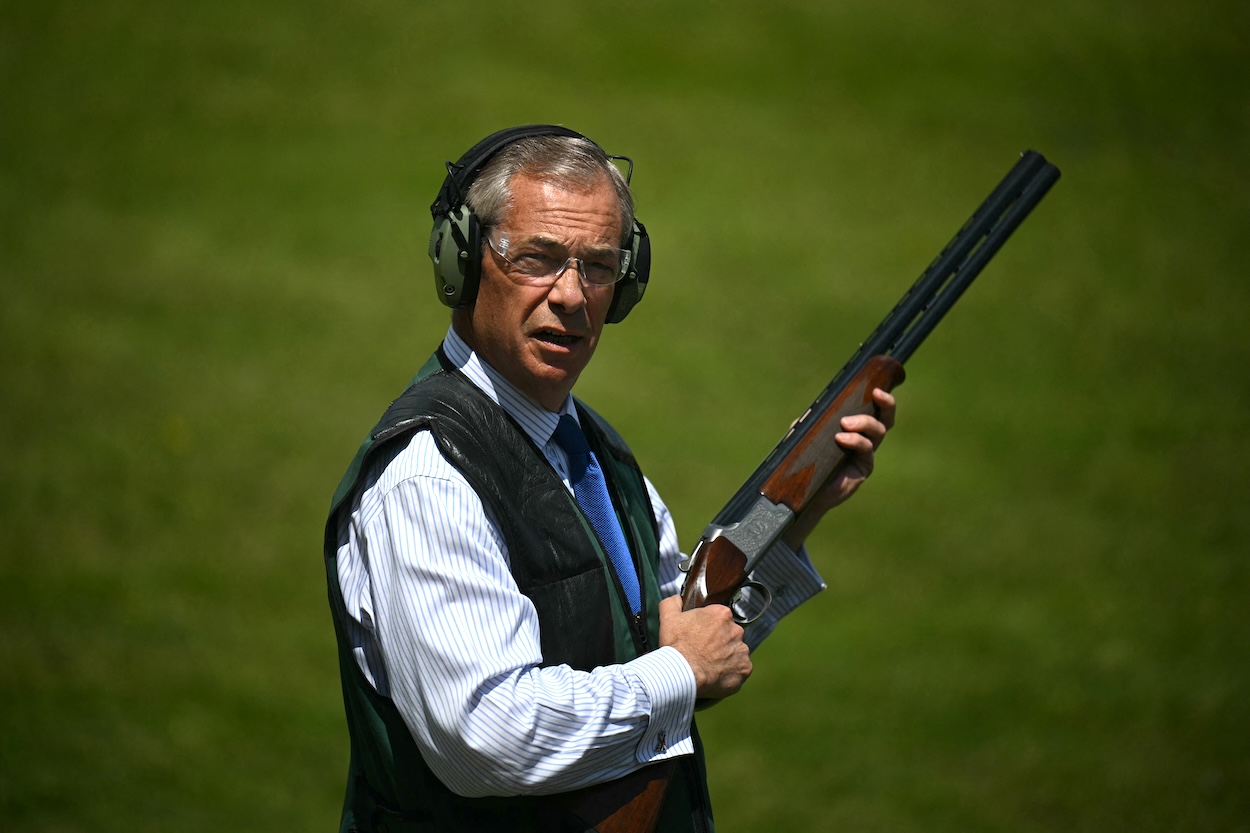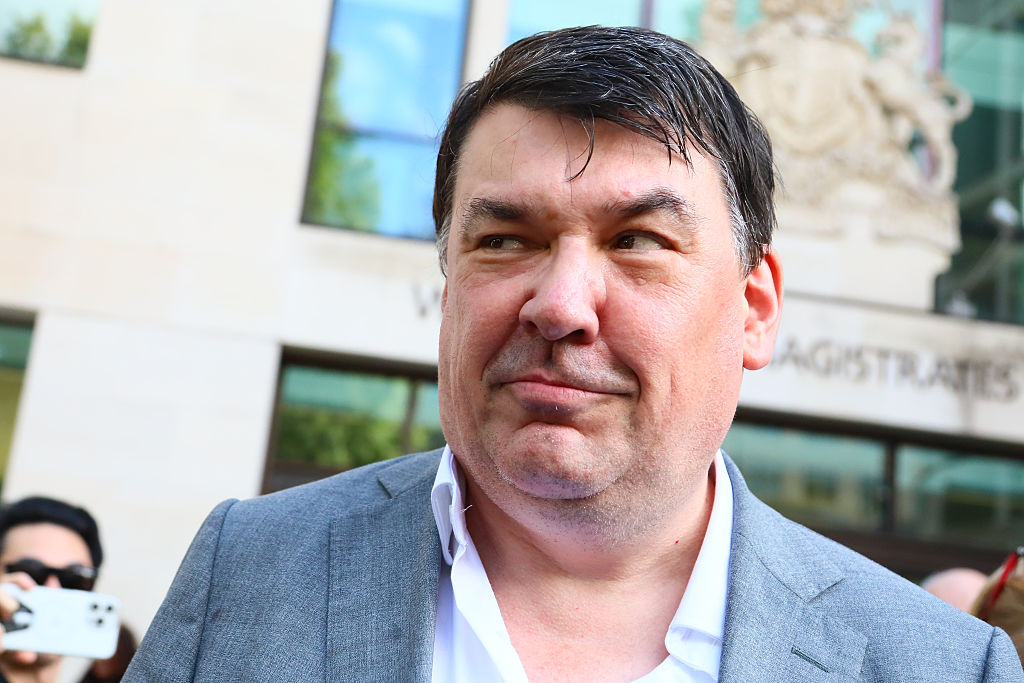Whenever Europeans feel inadequate in relation to America, and have a yearning to console themselves, there is one subject that always comes up: the Second Amendment of the US Constitution, i.e. gun law.
Yes, the Yanks may be richer than us. Yes, a dockworker in Delaware can earn more than a British cabinet minister. Yes, America has a dynamic economy and the world’s most powerful military, with a huge lead in science, tech and finance. But remember: ‘in Europe we don’t have mass shootings.’ ‘British children aren’t taught how to dodge bullets.’ ‘You may have Silicon Valley, but we don’t have lunatics wandering around Tesco with AR-15s.’
This feels even truer right now, as America reels from a horrific assassination, by a shooter on a roof with a rifle. And yet, as Charlie Kirk himself argued, some deaths are a necessary price to pay for the freedom and security that comes from widespread gun ownership. Could it be that, despite it all, Kirk had a profound point?
For one thing, the death tolls must be seen in context. In some years more Europeans die from heatwaves (mainly due to a lack of air conditioning) than Americans die from gunshots. Yes, this is definitely apples v. oranges, but it does put the ‘America as unique slaughterhouse’ narrative in perspective.
And then there’s the original American reasoning for those liberal gun laws. Look at the Second Amendment in full: ‘A well regulated Militia, being necessary to the security of a free State, the right of the people to keep and bear Arms shall not be infringed.’
To Europeans, this has always sounded like an antique cowboy fantasy – a recipe for citizens to shoot up the neighbours, or take AK-47s into high school because you don’t like Mondays. Yet the Founding Fathers did not include this amendment as a means of enacting swift justice on burglars. They had deeper reasons.
When the amendment was written America’s founders had just fought a war against Britain, whose standing army they viewed as a tool of oppression. Many believed that citizen armies were preferable to a permanent military force that could threaten American liberties. At the same time, anti-federalists worried that the new government could disarm state militias, leaving ordinary Americans defenceless against tyranny, or anarchy.
Now, as we gaze in dismay at the state of modern Britain, much of this early American thinking appears more rational. Because those who are meant to defend us, police us and rule us seem to have either lost their senses – very dangerously – or to be actively and violently working against the average British citizen.
It probably doesn’t need spelling out, but let’s spell it out. Start with the police. Only last week, five armed UK police arresting a 57-year-old Irish writer for ‘transphobic’ social media. A few months ago, a brief, anodyne ten-word tweet by Julian Foulkes, voicing concern about rising anti-Semitism, triggered an entire police raid. Twenty-seven people saw the tweet. Comedian Andrew Doyle estimates 12,000 people are arrested in Britain every year for ‘offensive speech’.
Nor is it just social media. As asylum seeker protests have erupted across Britain – in response to horrible crimes like the alleged rape, kidnap and strangulation of a 12-year-old girl in Nuneaton – the police have been notably heavy-handed in pushing back. A woman who raised a Union flag in Epping was brusquely dragged away and charged. Meanwhile, angry Muslim protestors in British towns have been meekly asked by officials to ‘please leave your weapons at the mosque.’
Would my daughters feel safer if we were allowed to buy pistols?
The judiciary is no better. Lucy Connolly got 31 months, as we all know, for one stupid inflammatory tweet which she briskly deleted. These same judges are more lenient when it comes to foreign criminals. In the last year or two, tribunals have refused to deport foreigners guilty of deeply serious crimes, with their barristers successfully arguing that they might get depressed, they don’t like flying, they need to teach their kids about Islam, they won’t be happy back home as an alcoholic, their children won’t have access to chicken nuggets, and ‘their own countries take a dim view of sex crimes’, so Britain must suffer their rapes instead.
The government is no better. When it isn’t giving away British territory and then making us pay for the displeasure – because it was told to do so by a foreign court that hates us – it is singularly failing to stop 40,000 unwanted young men annually landing on our shores, often from inimical cultures and sometimes with aggressively hostile views, while shamelessly lying to us on TV that ‘most of the people in the boats are women and children.’
It is an unholy trinity, and on a bad day it feels like treachery. Those who seek to rule us seem to despise us. Those who are meant to protect us do nothing of the sort. Those who enforce our laws enforce them against Britons with zeal, while strenuously protecting the ‘human rights’ of immigrant sex offenders.
Of course, the very idea of an armed citizenry is fraught with its own terrors – as we have seen in Utah – but such is the failure in British governance, at all levels, the questions nonetheless arise: would the British state do all this if Britons were commonly armed? Would they treat us with such contempt if there was a real risk of insurrection? Would I personally feel safer – would my daughters feel safer – if we were allowed to buy pistols?
At the moment, for me, these are just questions. I still feel, on balance, that Europe has a healthier attitude to firearms than the USA. But the key words here are ‘on balance’. Just as I wish we had America’s First Amendment protecting free speech, now I am wondering if the Second Amendment has merit as well.
And one thing is for sure. I am no longer scoffing at the joke that is American gun law. Because I fear that one day the Americans might be the ones laughing, very sadly, at those unarmed fools, the British.








Comments